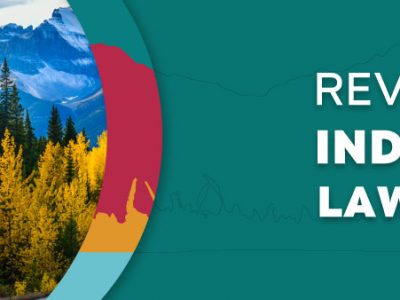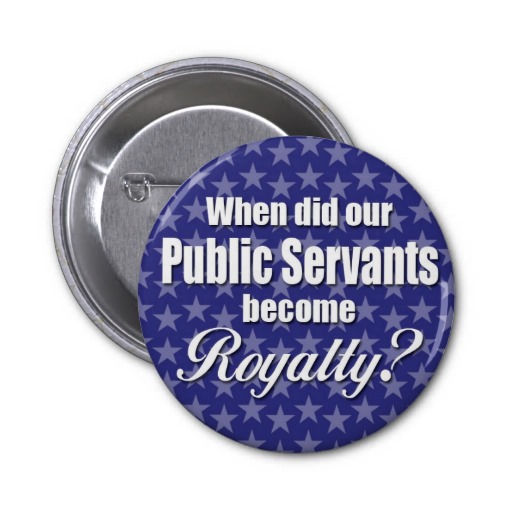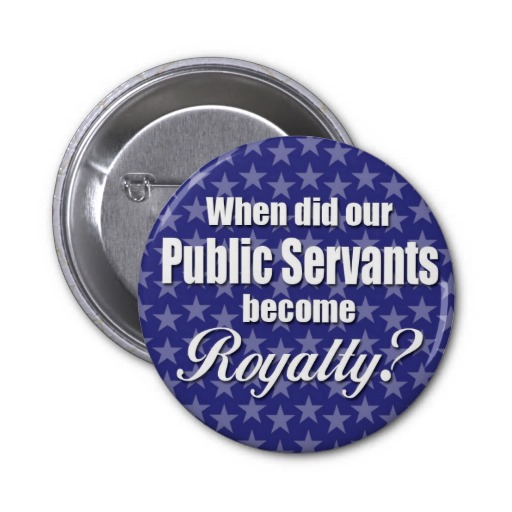

Public Servants Have Rules Too
 It Has Become Your Job to Remind THEM of the THEIR Rules
It Has Become Your Job to Remind THEM of the THEIR Rules
if you are not happy with how you have been treated by a ‘public servant’ police, judge, sheriff, court clerk, city worker, politician etc. etc….then say so, make a formal complaint and here’s why and how.
There are two key concepts status and accountability. We won’t address status herein (we have other places). No matter your status, accountability is required and it REQUIRES the unhappy party to make a claim/complaint to get accountability… otherwise there is NO accountability. At which point you become partially responsible because you failed in your duty at law. check out our course “Your Complaint IS Their Restraint”
As with the previous post on filing complaints against RCMP, all public servants are subject to lots of rules, regulations, laws, ethical mandates etc. which means if you know their rules and they have broken them you should complain via the official process right away.
It’s called an administrative complaint and puts the wrongdoer and their bosses on notice. Failure to correct wrongs increases liability and is real bad PR – IF ENOUGH PEOPLE COMPLAIN.
The key here is you NEED to know you CAN complain, HOW to complain and make sure the complaint is legitimate (backed up by facts and evidence). If enough people do this simple process – things will improve.
We are in the mess we are in because people poorly treated are not complaining consistently and effectively. One complaint can be ignored….multiple complaints become a problem that must be addressed… ongoing complaints become a PR nightmare and heads role.
Are you willing to do your duty to ‘keep the peace’ AND help enforce ‘the rule of law’ for all, in order to support ‘peace order and good government’? Then complain when public servants break the rules – each and every time.
READ THIS Values and Ethics Code for the Public Sector
The Role of Federal Public Servants
Federal public servants have a fundamental role to play in serving Canadians, their communities and the public interest under the direction of the elected government and in accordance with the law. As professionals whose work is essential to Canada’s well-being and the enduring strength of the Canadian democracy, public servants uphold the public trust.
The Constitution of Canada and the principles of responsible government provide the foundation for the role, responsibilities and values of the federal public sector.[1] Constitutional conventions of ministerial responsibility prescribe the appropriate relationships among ministers, parliamentarians, public servants[2] and the public. A professional and non-partisan federal public sector is integral to our democracy.
Accountable Government: A Guide for Ministers and Ministers of State – 2011
Accountable Government: A Guide for Ministers and Ministers of State sets out core principles regarding the roles and responsibilities of Ministers in Canada’s system of responsible parliamentary government. This includes the central tenet of ministerial responsibility, both individual and collective, as well as Ministers’ relations with the Prime Minister and Cabinet, their portfolios and Parliament. It outlines standards of conduct expected of Ministers as well as addressing a range of administrative, procedural and institutional matters. On the critical issue of ethical conduct, Ministers should ensure that they are thoroughly familiar with the Conflict of Interest Act. [ PDF 1.31 MB ]
Responsibility in the Constitution -Privy Counsel Office
In 1977, the Privy Council Office made a submission to the Lambert Commission on Financial Management and Accountability. One of the four papers in that submission dealt with the principles and evolution of responsible government in Canada. The document, entitled “Responsibility in the Constitution”, has been used as a basic reference work within and around the Privy Council Office ever since.
This paper is being re-issued with the aim of making it more widely available to those interested in the history and foundations of our system of responsible government and of the principles and conventions that underlie it. I hope this volume will be as useful to a new generation of readers as it has been to us over the past sixteen years.
Clerk of the Privy Council and
Secretary to the Cabinet
June 1993
check out our course “Your Complaint IS Their Restraint”
Responsibilities of Supervisors and Senior Officers
Key responsibilities
- Show leadership by modelling ethical behaviour.
- Ensure employees have a general understanding of the Public Servants Disclosure Protection Act (PSDPA) and the procedures for making disclosures.
- Provide informal advice.
- Receive disclosures of wrongdoing from employees.
- Protect the identity of all persons involved in the disclosure process and maintain the confidentiality of information collected, in accordance with the Act.
- Protect from reprisal the employee who discloses wrongdoing or who is involved in a disclosure investigation.
- Make recommendations to chief executives regarding measures to correct wrongdoing.
Public Works and Government Services Canada
Glossary on Values and Ethics—
Fascicle 1: Values and Ethics in the Public Sector
A public servant may make a disclosure to his or her immediate supervisor, to the senior officer for disclosure or to the Public Sector Integrity Commissioner, in confidence and without fear of reprisal. The Public Sector Integrity Commissioner may also receive information from the general public regarding wrongdoings committed in the public sector.
The Office of the Chief Human Resources Officer (OCHRO) at Treasury Board is the centre of expertise and leadership on values-based management and the policy centre for the PSDPA. The Office was instrumental in developing the new Values and Ethics Code for the Public Sector, which came into force on April 2, 2012, and which replaces the 2003 Values and Ethics Code for the Public Service.
The new Code outlines the fundamental values of the public sector and describes the behaviours that public servants must adhere to in all their professional activities. By committing to these values and adhering to the expected behaviours, public servants strengthen the ethical culture of the public sector and contribute to public confidence in the integrity of all public institutions. In accordance with section 6 of the PSDPA, each chief executive must establish a code of conduct applicable to the portion of the public sector for which he or she is responsible. This code of conduct must be consistent with the code of conduct established by Treasury Board.
The Conflict of Interest and Post-Employment Policy outlines a series of requirements that relate specifically to conflict of interest, assets, gifts, outside employment or activities, solicitation and avoidance of preferential treatment, as well as post-employment compliance measures. In the interest of preserving the government’s impartiality and integrity, public servants must comply with certain requirements to prevent and avoid real, potential and apparent conflict of interest situations when performing their duties and after leaving their position. The Conflict of Interest and Post-Employment Policy is mandatory for departments and agencies in the core public administration for which Treasury Board is the employer. Separate agencies and parent Crown corporations can develop their own conflict of interest and post-employment policies.
As a condition of employment, public servants are required to comply with the Values and Ethics Code for the Public Sector, their organization’s code of conduct, and, where relevant, the requirements listed in Appendix B of the Conflict of Interest and Post-Employment Policy.
Ethics, as an autonomous behaviour control mechanism, gives rise to reflection, personal judgment, autonomous decision making and genuine dialogue about the values that guide actions and their application and about conflicts of values and interest. The Values and Ethics Code for the Public Sector is a guide for all the members of an organization and an essential management tool for public administration managers. Values and ethics constitute the basis of an effective public sector.
The public sector is once again undergoing an important transformation, based this time on innovation and ongoing renewal and focused on the perpetuation of its tradition of excellence and on its common values, in order to continue to give effective service to the Canadian population. Ethics are an essential component of this transformation project.
excerpt….
- wrong (n.)
- wrongdoer
- wrongdoing
- NOTE A contravention of any Act of Parliament or of the legislature of a province, or of any regulations made under any such Act … a misuse of public funds or a public asset; a gross mismanagement in the public sector; an act or omission that creates a substantial and specific danger to the life, health or safety of persons, or to the environment, other than a danger that is inherent in the performance of the duties or functions of a public servant; a serious breach of a code of conduct … and knowingly directing or counselling a person to commit a wrongdoing … [Public Servants Disclosure Protection Act (S.C. 2005, c. 46, s. 8)].rule of law
- NOTE Democratic value [Tait Report].
wrongdoing provisions
wrongdoing under the Act
- NOTE Public Servants Disclosure Protection Act.wrongful act
What is ethics?
Values that have an impact on the democratic process:
- anonymity of the public service;
- ministerial responsibility;
- impartiality;
- openness;
- accountability of public service employees.
Access to Information Request Form
Conflict of Interest Act online
====
Public Servants Disclosure Protection Act
S.C. 2005, c. 46 Assented to 2005-11-25
An Act to establish a procedure for the disclosure of wrongdoings in the public sector, including the protection of persons who disclose the wrongdoings
http://laws-lois.justice.gc.ca/eng/acts/P-31.9/FullText.html
-
“public sector”
-
“public sector” means
-
(a) the departments named in Schedule I to the Financial Administration Act and the other portions of the federal public administration named in Schedules I.1 to V to that Act; and
-
(b) the Crown corporations and the other public bodies set out in Schedule 1.
However, subject to sections 52 and 53, “public sector” does not include the Canadian Forces, the Canadian Security Intelligence Service or the Communications Security Establishment.
-
-
“public servant”
-
“public servant” means every person employed in the public sector, every member of the Royal Canadian Mounted Police and every chief executive.
Wrongdoings
8. This Act applies in respect of the following wrongdoings in or relating to the public sector:
-
(a) a contravention of any Act of Parliament or of the legislature of a province, or of any regulations made under any such Act, other than a contravention of section 19 of this Act;
-
(b) a misuse of public funds or a public asset;
-
(c) a gross mismanagement in the public sector;
-
(d) an act or omission that creates a substantial and specific danger to the life, health or safety of persons, or to the environment, other than a danger that is inherent in the performance of the duties or functions of a public servant;
-
(e) a serious breach of a code of conduct established under section 5 or 6; and
-
(f) knowingly directing or counselling a person to commit a wrongdoing set out in any of paragraphs (a) to (e).
-
(g) [Repealed, 2006, c. 9, s. 197]
- 2005, c. 46, s. 8;
- 2006, c. 9, s. 197.
Disciplinary action
9. In addition to, and apart from, any penalty provided for by law, a public servant is subject to appropriate disciplinary action, including termination of employment, if he or she commits a wrongdoing.
….
DISCLOSURE OF WRONGDOINGS
Establishment of internal disclosure procedures
-
10. (1) Each chief executive must establish internal procedures to manage disclosures made under this Act by public servants employed in the portion of the public sector for which the chief executive is responsible.
-
Designation of senior officer
(2) Each chief executive must designate a senior officer to be responsible for receiving and dealing with, in accordance with the duties and powers of senior officers set out in the code of conduct established by the Treasury Board, disclosures of wrongdoings made by public servants employed in the portion of the public sector for which the chief executive is responsible.
-
Senior officer from other portion of public sector
(3) A chief executive may designate as a senior officer for the portion of the public sector for which the chief executive is responsible a person who is employed in any other portion of the public sector.
-
Exception
(4) Subsections (1) and (2) do not apply to a chief executive if he or she declares, after giving notice to the Chief Human Resources Officer appointed under subsection 6(2.1) of the Financial Administration Act, that it is not practical to apply those subsections given the size of that portion of the public sector.
- 2005, c. 46, s. 10;
- 2006, c. 9, s. 198;
- 2010, c. 12, s. 1679;
- 2011, c. 24, s. 177.
Duty of chief executives
-
11. (1) Each chief executive must
-
(a) subject to paragraph (c) and any other Act of Parliament and to the principles of procedural fairness and natural justice, protect the identity of persons involved in the disclosure process, including that of persons making disclosures, witnesses and persons alleged to be responsible for wrongdoings;
-
(b) establish procedures to ensure the confidentiality of information collected in relation to disclosures of wrongdoings; and
-
(c) if wrongdoing is found as a result of a disclosure made under section 12, promptly provide public access to information that
-
(i) describes the wrongdoing, including information that could identify the person found to have committed it if it is necessary to identify the person to adequately describe the wrongdoing, and
-
(ii) sets out the recommendations, if any, set out in any report made to the chief executive in relation to the wrongdoing and the corrective action, if any, taken by the chief executive in relation to the wrongdoing or the reasons why no corrective action was taken.
-
-
-
Exception
(2) Nothing in paragraph (1)(c) requires a chief executive to provide public access to information the disclosure of which is subject to any restriction created by or under any Act of Parliament.
….
Disclosure to public
-
16. (1) A disclosure that a public servant may make under sections 12 to 14 may be made to the public if there is not sufficient time to make the disclosure under those sections and the public servant believes on reasonable grounds that the subject-matter of the disclosure is an act or omission that
-
(a) constitutes a serious offence under an Act of Parliament or of the legislature of a province; or
-
(b) constitutes an imminent risk of a substantial and specific danger to the life, health and safety of persons, or to the environment.
-
-
Limitation
(1.1) Subsection (1) does not apply in respect of information the disclosure of which is subject to any restriction created by or under any Act of Parliament, including the Personal Information Protection and Electronic Documents Act.
-
Rights not affected
(2) Nothing in subsection (1) affects the rights of a public servant to make to the public in accordance with the law a disclosure that is not protected under this Act.
For more on the process check out our course “Your Complaint IS Their Restraint”
this Post was originally Posted May 7, 2014 on private-person.com

